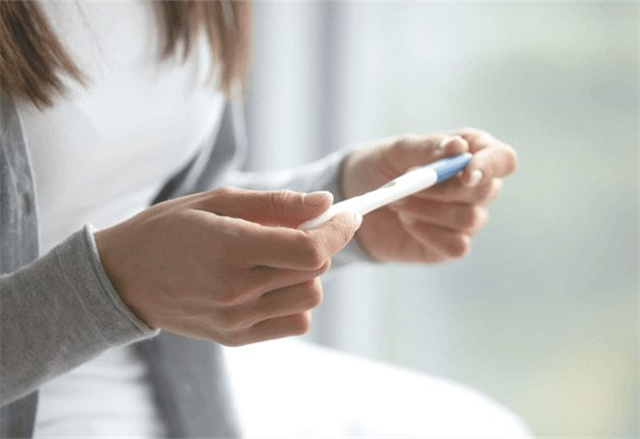
Possible.
The principle of early pregnancy test strips is to detect whether there is HCG (chorionic gonadotropin) in the urine. When a woman is pregnant, the placenta produces this glycoprotein hormone (HCG), which can be excreted into the urine through the maternal blood circulation.
The early pregnancy test paper uses colloidal gold as an indicator. Only when the concentration of HCG in the urine reaches the lowest value of the mark will it display the color band of pregnancy.
HCG generally appears in urine and blood 6 days after conception, but due to the small amount, it is difficult to detect early pregnancy test strips at this time. However, after 10 to 14 days of intercourse, the HCG content increases significantly, and it can be easily detected at this time. However, the speed and amount of HCG secreted by women vary from person to person, so in order to improve the accuracy of the test, experts suggest that it is best to test yourself after 2 weeks of menstrual delay, when the results are more reliable.
In addition, there are many situations that can lead to inaccurate test strip results
1. The use of test strips is inaccurate, and the depth of urine is too high or too low, etc.
2. Urine is diluted (this is why morning urine works best, with the highest concentration of HCG in morning urine)
3. The test strip is contaminated, expired or damp, etc. will also lead to failure
4. Some own diseases such as endometrial hyperplasia can also cause the human body to produce HCG, so the test strip shows two bars.
5. The fertilized egg has not yet implanted.
Generally speaking, if the correct test method is used, the early pregnancy test paper is still very accurate, and the accuracy rate can reach more than 95%. In particular, repeat the test more than two times, the results can basically be determined. The early pregnancy test strips provided by JINYE can provide accurate results, and the accuracy rate is as high as 99.96%.
Of course, if you are really worried, you can go directly to the hospital for examination. Because ectopic pregnancy, molar pregnancy and other factors can also make the pregnancy test card positive, it is necessary to seek medical attention for further examination.
In addition to early pregnancy test strips, there are also the following types of early pregnancy tests:
Blood HCG detection time (about 20 days after intercourse)
To test whether you are pregnant - generally, you can go to the hospital about 20 days after intercourse to do a blood HCG test to check the blood HCG content in the blood.
B-ultrasound examination time (menstruation is delayed by about a week)
The time of B-ultrasound to detect early pregnancy is generally about a week after the menstrual delay. You can go to the hospital for B-ultrasound to check whether you are pregnant. If you can see the pregnancy halo under the B-ultrasound, it means you are pregnant.
Other checks
If you have heart, liver, kidney, thyroid and other diseases, you need to consult a physician to find out whether continuing pregnancy will increase the risk.














